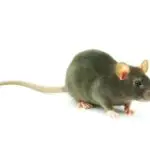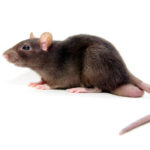How Do Rat Blocks Work?
Rat blocks work by baiting rats with anticoagulants. These anticoagulants prevent rats from making the connection between their food source and the poison they ingest. This makes anticoagulant blocks an effective solution to a common rodent problem. While anticoagulant block baits are not immediate, they are very effective at catching rodents.
Bait blocks are formulated with a small amount of Diphacinone, a poison that is especially effective against mice and rats. They are approved for outdoor and indoor use. These blocks work well against rats, mice, voles, and smaller ground squirrels. However, they are not effective against chipmunks or tree squirrels.
Rat blocks work well in damp and dry environments. They are highly attractive to rodents and are highly effective against resistant strains. They are also effective in buildings and are safe to use around children, livestock, and wildlife. However, some people prefer a fast-acting rodenticide. However, Bait Blocks take a few days to kill a mouse or rat.
Bait stations provide an additional benefit: they protect the bait from weather conditions. In addition, homeowners should make sure to follow all directions on the label when replacing the bait. The bait should be placed at least 30 feet apart and closer if the infestation is heavy. It is also important to replace the bait regularly. If you are replacing the bait yourself, make sure to wear protective clothing and store the bait in a secure container, away from children’s reach.








